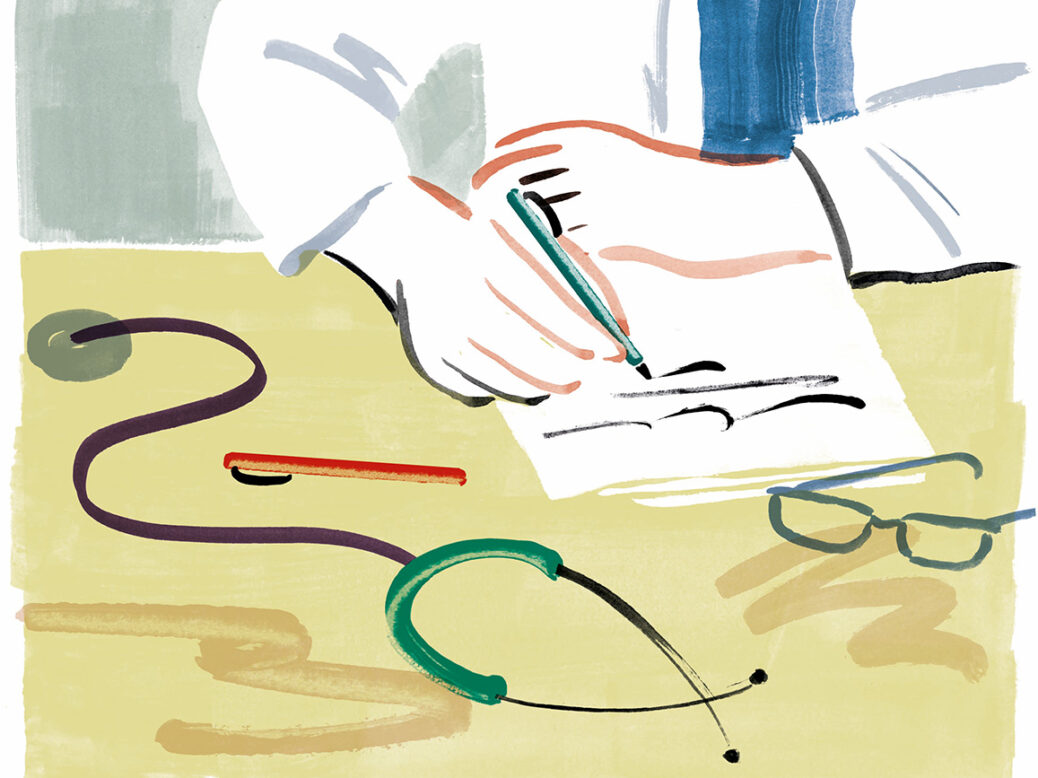
A friend asked recently whether I would provide assisted dying if Kim Leadbeater’s private members’ bill were passed into law. She was surprised at how readily I said I would. She had expected equivocation – one of the arguments against medical assistance in dying is that it would fundamentally change the role of doctor from life-preserver to life-extinguisher, which would undermine the trust placed in us by patients. My view is that it would improve immeasurably what we already do.
Good medical practice involves helping patients to explore and understand all their options and supporting them in whatever they choose. Often, a patient will decide against pursuing potentially life-extending treatment, judging that any gain in quantity would be outweighed by diminished quality. We accept that life-preservation at any cost is not necessarily an appropriate goal.
Alongside this, it is accepted that doctors already cause some patients to die more swiftly than they otherwise would. This is entirely permissible under the doctrine of double effect. The drugs used to alleviate severe pain or extreme distress depress consciousness and respiration, which will often hasten the end of life. If the primary intention of treatment is to relieve suffering in a terminal condition, then earlier death has always been deemed an acceptable secondary effect.
The problem with the doctrine of double effect is that it is clinicians, not patients, who control the decision: we must conclude that someone’s symptoms are severe enough to necessitate administering medications in doses that may accelerate dying. Patients must experience great suffering before a clinician will do anything that might actively shorten their life.
At the heart of the assisted dying debate is the question of whether to transfer this control to the person affected – and in particular, whether to allow someone to decide to trade their remaining time to have certainty of avoiding future physical or psychological suffering. Opponents of assisted dying frequently cite palliative care as the solution to this dilemma: there is no need to worry because whatever befalls you, there is a way of alleviating it. While high-quality palliative care helps many achieve a good death, it is dishonest to suggest it always results in adequate symptom control.
The Netherlands and Canada, both with established medical assistance in dying programmes, typically see around 5 per cent of patients taking up the option. Doctors and nurses I have spoken to in both countries endorse it as a valuable service. They also testify to future dilemmas. Leadbeater’s bill deals only with adults with a terminal prognosis measurable in a certain number of months. How intolerable suffering in other contexts – neurodegenerative diseases, multimorbidity or mental illnesses – might be addressed poses additional challenges. But that is no reason not to begin a journey for which there is strong public support.
There is, however, a reason to delay: Leadbeater’s bill is the right legislation at entirely the wrong time. Safeguards would be of paramount importance, and one of the most effective is continuity of GP care. A doctor who knows their patient well – not just their medical case, but also their character, opinions, relationships, beliefs and circumstances – is best placed to ensure any decision to request assisted dying is well founded. In the 2000s, this kind of doctor-patient relationship was the norm – now it is the exception.
Then there is the related question of patients’ options. In the earlier years of my career, patients would receive good quality, responsive palliative care at home, delivered by district nurses and GPs, and backed up by specialists from the local hospice. More than 50 per cent of district nursing capacity has been lost over the past 15 years, and we’re now so short of GPs that in many parts of the country, home visits by doctors are unobtainable.
Assisted dying must be a free choice between true alternatives, not one taken because as a society we are failing to provide proper healthcare.
See also: Caution should prevail on the assisted dying bill]
This article appears in the 30 Oct 2024 issue of the New Statesman, American Horror Story



